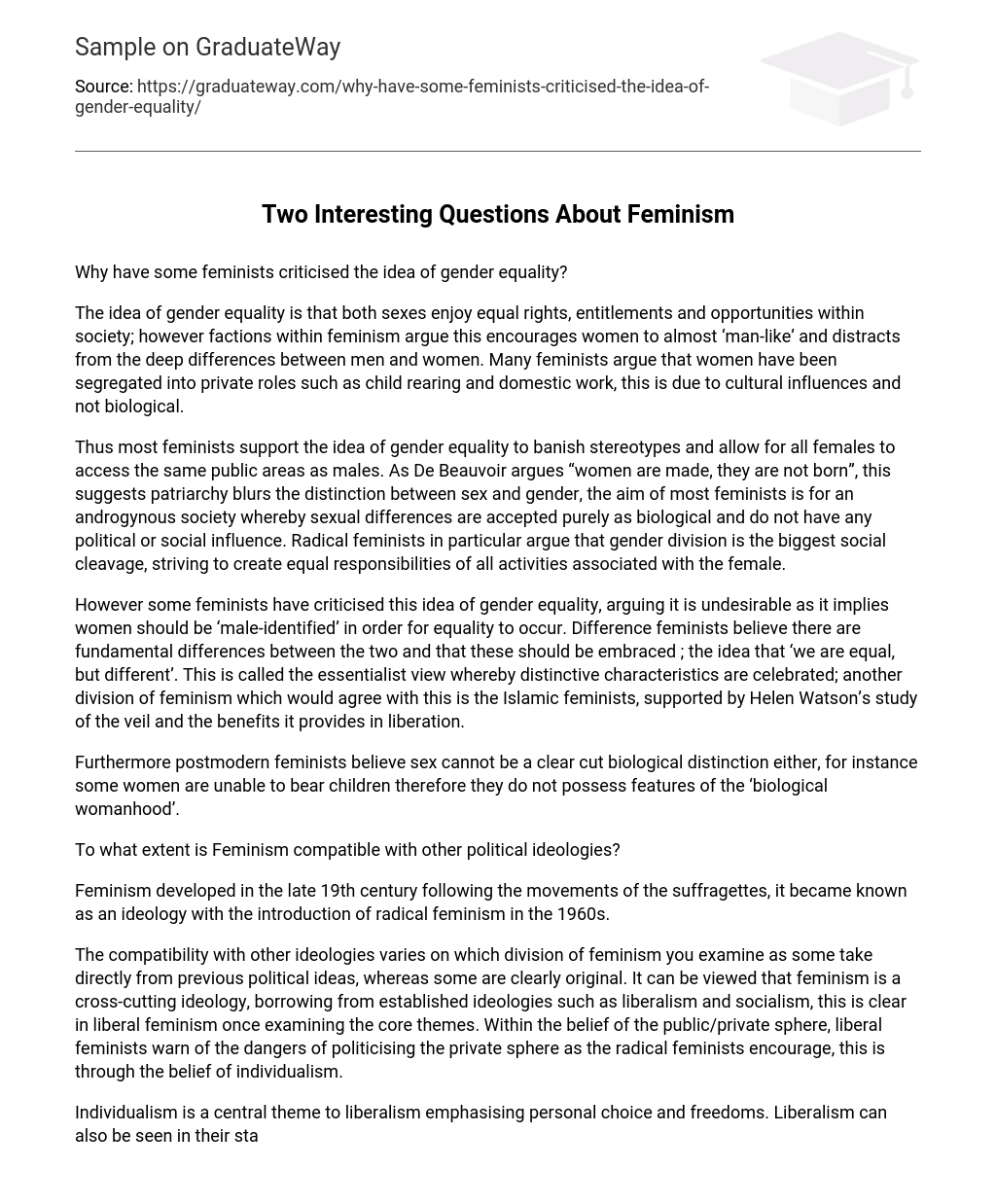Why have some feminists criticised the idea of gender equality?
The idea of gender equality is that both sexes enjoy equal rights, entitlements and opportunities within society; however factions within feminism argue this encourages women to almost ‘man-like’ and distracts from the deep differences between men and women. Many feminists argue that women have been segregated into private roles such as child rearing and domestic work, this is due to cultural influences and not biological.
Thus most feminists support the idea of gender equality to banish stereotypes and allow for all females to access the same public areas as males. As De Beauvoir argues “women are made, they are not born”, this suggests patriarchy blurs the distinction between sex and gender, the aim of most feminists is for an androgynous society whereby sexual differences are accepted purely as biological and do not have any political or social influence. Radical feminists in particular argue that gender division is the biggest social cleavage, striving to create equal responsibilities of all activities associated with the female.
However some feminists have criticised this idea of gender equality, arguing it is undesirable as it implies women should be ‘male-identified’ in order for equality to occur. Difference feminists believe there are fundamental differences between the two and that these should be embraced ; the idea that ‘we are equal, but different’. This is called the essentialist view whereby distinctive characteristics are celebrated; another division of feminism which would agree with this is the Islamic feminists, supported by Helen Watson’s study of the veil and the benefits it provides in liberation.
Furthermore postmodern feminists believe sex cannot be a clear cut biological distinction either, for instance some women are unable to bear children therefore they do not possess features of the ‘biological womanhood’.
To what extent is Feminism compatible with other political ideologies?
Feminism developed in the late 19th century following the movements of the suffragettes, it became known as an ideology with the introduction of radical feminism in the 1960s.
The compatibility with other ideologies varies on which division of feminism you examine as some take directly from previous political ideas, whereas some are clearly original. It can be viewed that feminism is a cross-cutting ideology, borrowing from established ideologies such as liberalism and socialism, this is clear in liberal feminism once examining the core themes. Within the belief of the public/private sphere, liberal feminists warn of the dangers of politicising the private sphere as the radical feminists encourage, this is through the belief of individualism.
Individualism is a central theme to liberalism emphasising personal choice and freedoms. Liberalism can also be seen in their stance on equality, having pushed for formal/foundational equality and equality of opportunity, this can be seen in the liberal feminists view on creating equal access to and within the public sphere. Feminism is yet more compatible with other political ideologies when studying socialist feminists, they imply that class oppression and gender inequality are inextricably linked





